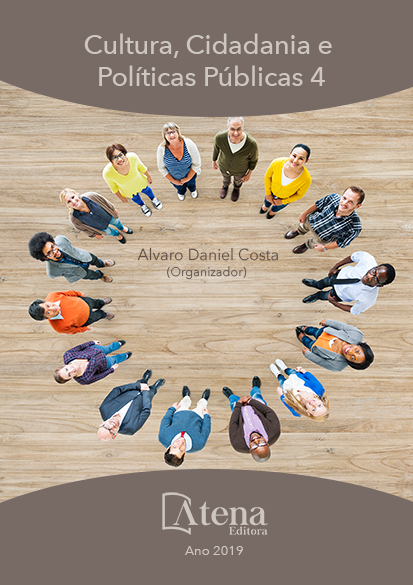
DIVINA PERFORMANCE: O MENINO IMPERADOR DA FESTA DO DIVINO ESPÍRITO SANTO
A Festa do Divino Espírito Santo de
Salvador Bahia, apesar de uma longa tradição
(duzentos e quarenta e cinco anos), permanece
bastante desconhecida pelos próprios habitantes
da cidade. Produzida pela Irmandade do Divino
Espírito Santo pertencente à Igreja Católica, esta
Festa herdada dos colonizadores portugueses
realiza-se anualmente no bairro do Santo Antônio
Além do Carmo, no período de Pentecostes.
Os festejos são conduzidos por um menino
Imperador que, respeitando a tradição, liberta
presos (as) do sistema penitenciário do estado.
É a performance realizada por este menino
durante um ritual de fé e beleza o tema principal
deste estudo. Além da pesquisa bibliográfica
o depoimento dos seus participantes e do
público constitui-se em parte essencial para a
memória desses festejos. Organizou-se um
registro audiovisual cobrindo todas as etapas
da Festa durante os anos de 2014 e 2015 este
vídeo-doc parte integrante desta pesquisa
constitui-se em um memorial inédito, além
de fazer parte de um importante “caderno de
campo”. Este estudo de caráter multidisciplinar
procura esquadrinhar um fenômeno cultural
popular religioso pelas lentes dos Estudos
Culturais, da História, da Antropologia e,
sobretudo, do campo das Artes através da
Etnocenologia e do campo da Performance.
DIVINA PERFORMANCE: O MENINO IMPERADOR DA FESTA DO DIVINO ESPÍRITO SANTO
-
DOI: 10.22533/at.ed.80319250114
-
Palavras-chave: Festa do Divino, Performance, Cultura Popular, Etnocenologia.
-
Keywords: Feast of the Empire of the Divine Holy Spirit, Boy Emperor, Performance, Popular Culture, Ethnoscenology.
-
Abstract:
The Feast of the Empire of the
Divine Holy Spirit in Salvador/Bahia/Brazil
remains widely unknown by the city inhabitants
despite a long tradition (two-hundred forty five
years). Sponsored by the catholic Brotherhood
of the Divine Holy Spirit, this Feast inherited from
the Portuguese colonizers happens annually
in the neighborhood of Santo Antonio Alem do
Carmo, in Pentecostal Season. The festivities
are lead by a Boy Emperor who, respecting
the tradition, free the state prisoners. The
performance done by this boy during a ritual of
faith and beauty is the main subject of this study.
Beyond bibliographical research, the testimonial
of the participants and of the public is an
essential aspect for the memory of the festivities.
An audiovisual register covering every stage of
the Feast during 2014 and 2015 is part of this
research. It constitutes an original memorial and
is an important part of the Field work. This is an
interdisciplinary study aiming to scan a cultural,
religious and popular phenomenon under the
lens of the Cultural Studies, of History, Anthropology and, above all, of the Arts filed
through the Ethnoscenology and field of Performing arts.
-
Número de páginas: 15
- Viviane Paraguaçu Nunes
- viviane paraguacu nunes


